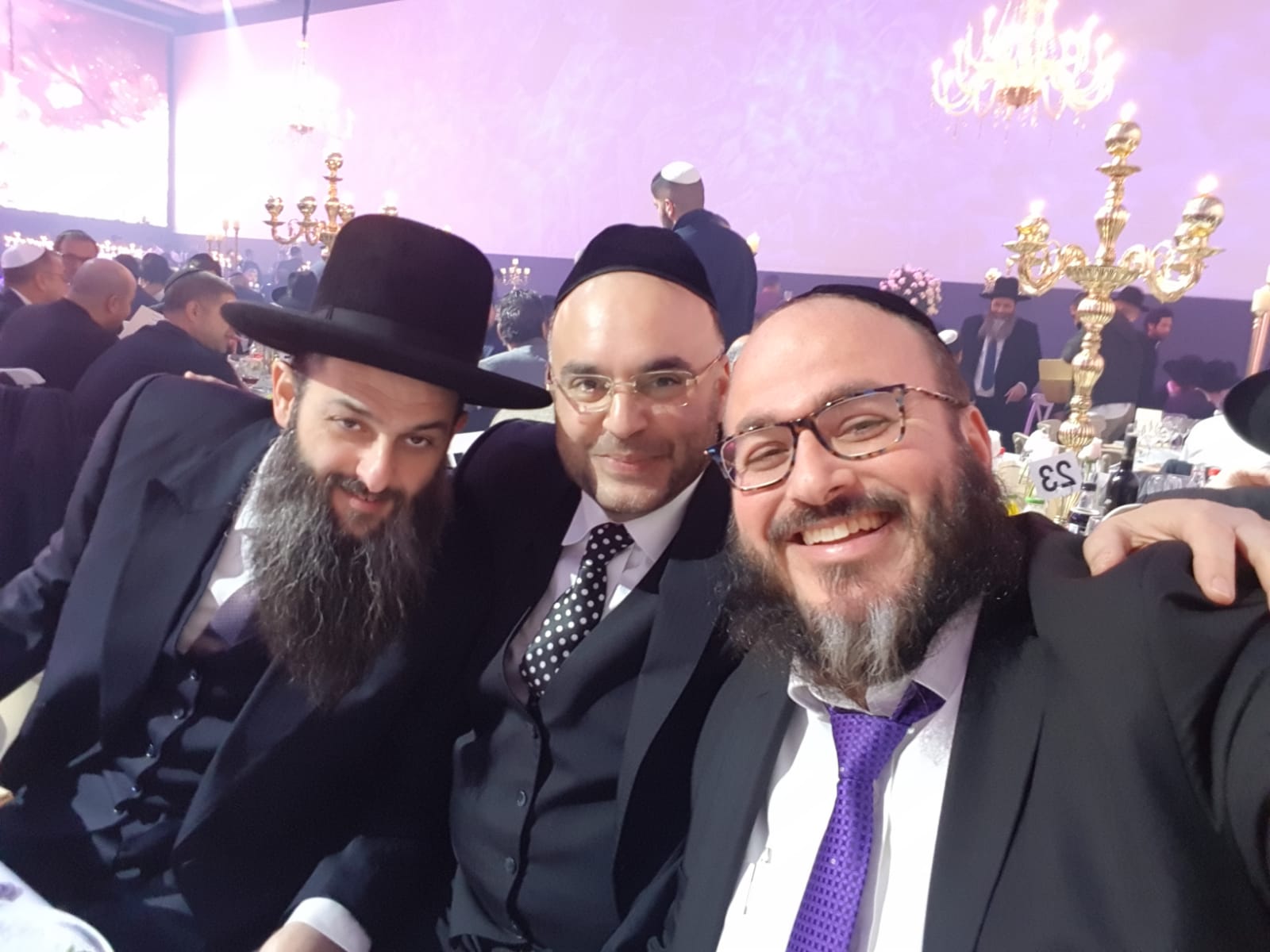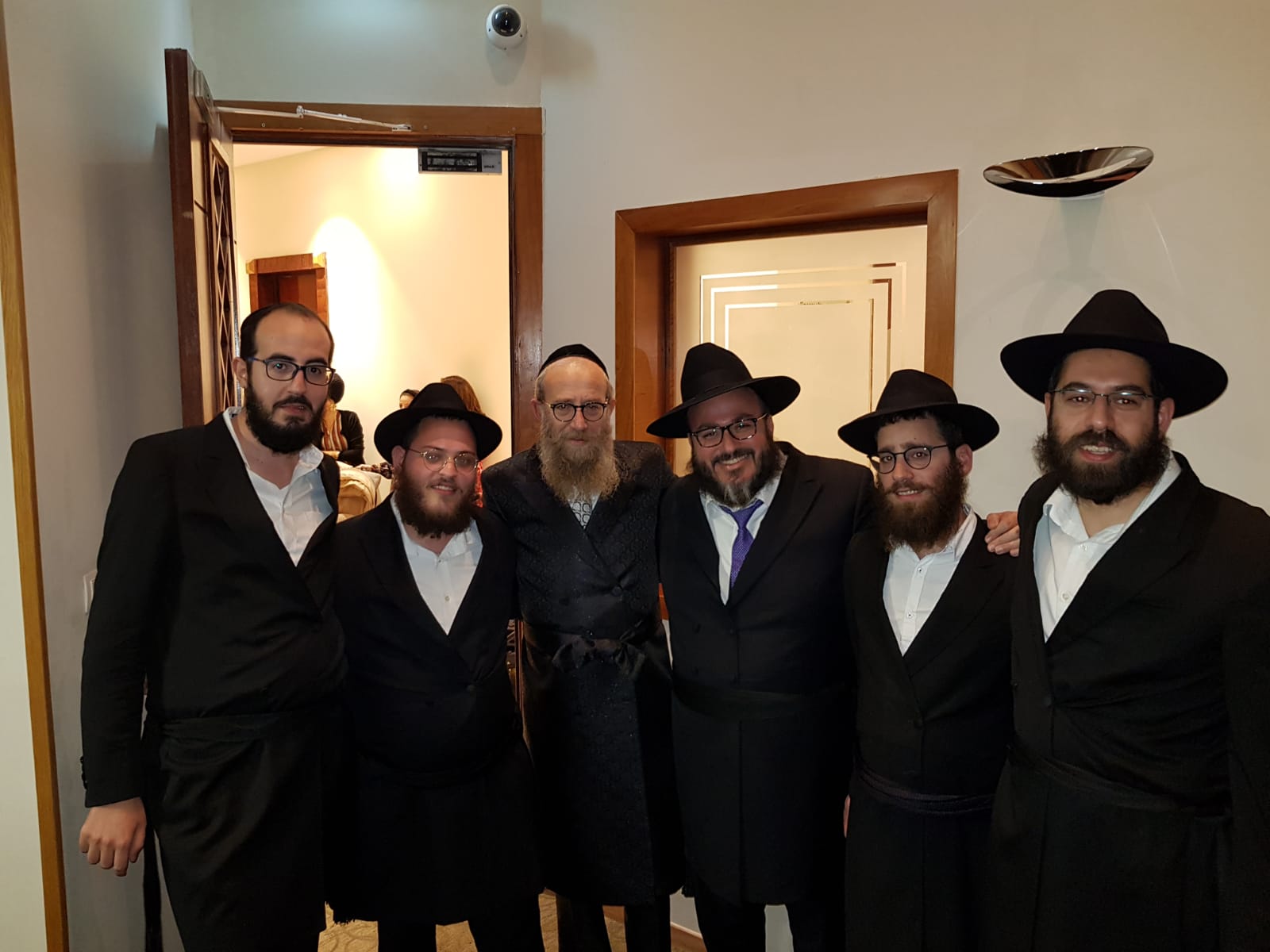Ami Maimon: "It's Intimidating to Know Hundreds of Thousands Are Listening to You"
Bringing laughter and wisdom, Ami Maimon talks about the pressure of his radio shows, the sources of his riddles, and the difficult moment he parted from his son.
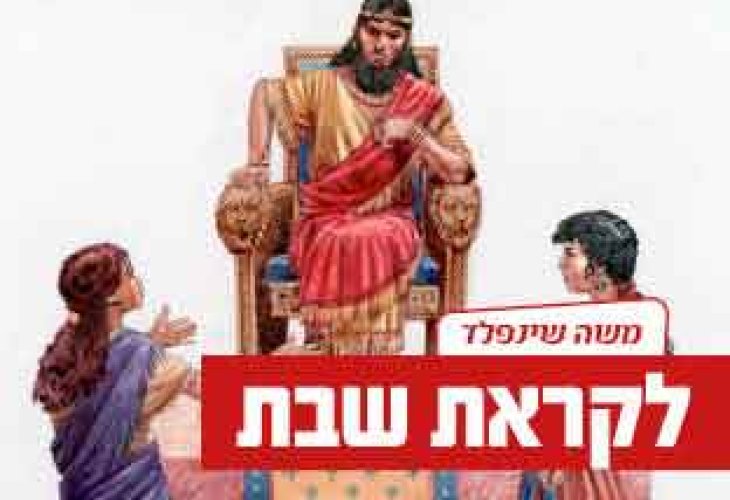 Ami Maimon
Ami MaimonIt happened on a sunny day. Ami Maimon was sitting in a long, exhausting traffic jam. In a short time, his radio broadcast was about to start, and he had to get to the studio on time. The traffic was moving slowly, Maimon stared in frustration at the car in front of him, and suddenly—honking and beeping from the opposite lane.
What is this? Who is honking? The honking doesn't stop for a moment, but it takes time for Maimon to realize that it's probably directed at him. As soon as he rolls down the window, he notices a bareheaded taxi driver in the opposite lane growling, "Maimon, I'm glad I met you, what's the answer to yesterday's riddle about the whale meat?"
Maimon, the veteran broadcaster and riddler, can't help but laugh when telling about it. For the benefit of readers unfamiliar with the riddle that took the country by storm, he agrees to share: "How is it possible for a person in a restaurant to be served a meal with impeccable kashrut, allowing him to eat it, yet if the restaurant were in another place, it would be forbidden? The answer: In the future, whale meat will be permitted only in Jerusalem, as it is considered kadosh."
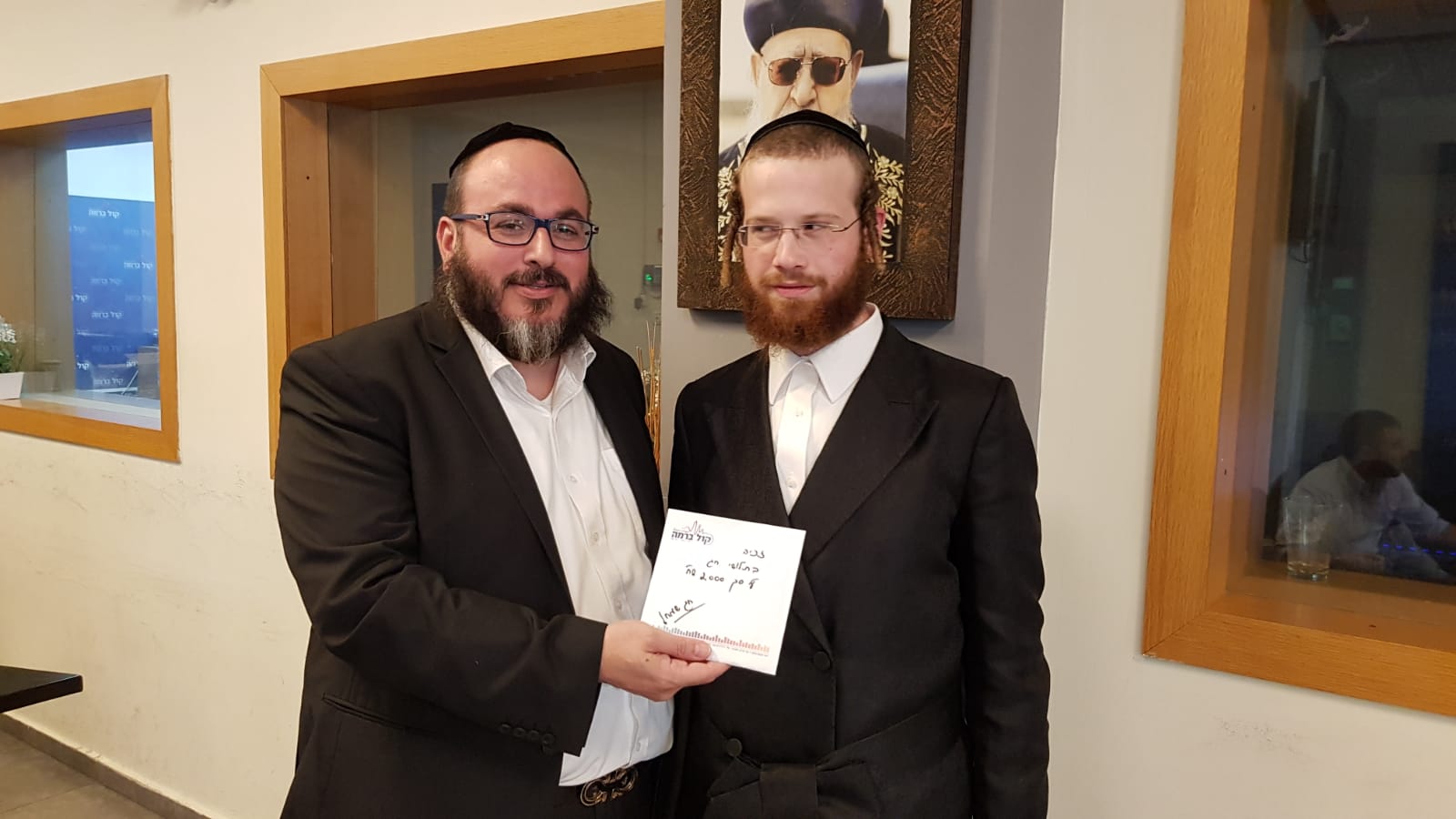
But it's not just this riddle; countless other riddles often become the talk of the day. And if you thought that because the radio is ultra-Orthodox, the listeners are mainly yeshiva students, you'd be surprised. According to the data, there are many listeners from all sectors who tune in to the program and often call in to participate.
What is it about Maimon's show that manages to captivate so many and engage such a broad audience? What is the secret that led to his receiving an "honorable mention" award from the Journalists' Association for hosting this show?
In a special conversation with Hidabroot, Maimon tries to explain: "I can say one thing—my show is actually comparable to many reality shows in the general sector, but it has significantly greater success than many of them. It shows how true adherence to the greats of Israel, in the form of 'Let us walk in their light', does not diminish the quality of our riddles and sharp wit. On the contrary—it enhances them to another level. When you engage with people over quotes from the Tanakh, the Talmud, and religious texts, they feel there's substance to it, that they're not wasting time. It's not just about laughing; it's much more."
"Additionally, I am very careful not to include songs by non-religious artists, or those that sing nonsense words. I want the words to be pleasant, with content and influence. I also host a regular charity segment, which I think ultimately makes people feel that there is something of quality here, worth listening to."
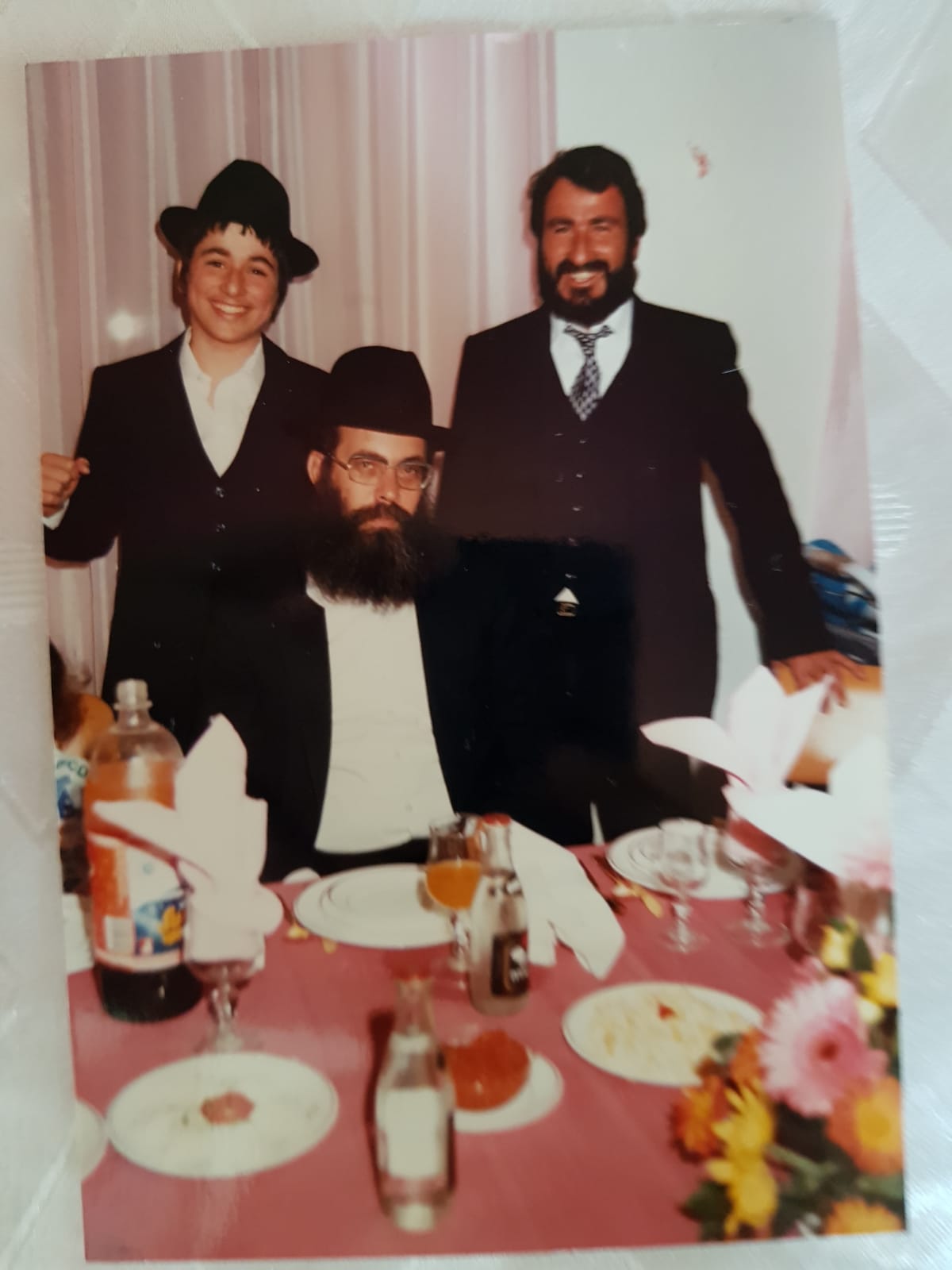 Ami Maimon's Bar Mitzvah
Ami Maimon's Bar Mitzvah"I Am Not a Clown"
Maimon, 43, began his media career at 'Kol Tzofayich', a Haredi radio station, where he hosted a morning show called 'To Tell of Your Kindness in the Morning', and also managed various fields. After the radio station closed, he moved to Radio Kol Barama, where he began broadcasting an hour of music and riddles under a daily show called 'Hidudon'. Admirer reactions quickly arrived, and the show was expanded to two hours.
If you thought Maimon was only responsible for the humor on Radio Kol Barama, he reveals to us that he is also responsible for various rabbinical programs.
How do these things fit together? Humor and rabbis?
"That's precisely the point," he clarifies, "I'm not a clown or a satirist; my goal is to sweeten the sting, and this can be through humor, through riddles, or through serious rabbinical programs. With Hashem's help, these two areas have developed greatly in recent years on the radio, thanks to the special efforts of Ariel Deri, the station's CEO, who works tirelessly."
Can I ask where you get your extensive Torah knowledge?
"This may be a slightly lesser-known detail in my resume," he replies, "but in my youth, I had the privilege of receiving rabbinic ordination and for years, I was the driver for Rabbi Dov Tavradovich, one of the great adjudicators of Chabad Hasidism, taking him to Torah classes. On all the journeys I made with him, I heard many questions from the adjudicators and halacha."
Maimon doesn't settle for his radio activity and in the evenings and nights, he goes out to events and celebrations to bring joy to the people of Israel. "I meet at least 400-500 people at different events every day," he says, "This is my opportunity to bring them joy. Unfortunately, there are so many difficult things among the people of Israel, and people walk around depressed and in pain. They say that redemption comes from joy, and I feel this is my mission, to put a smile on their faces."
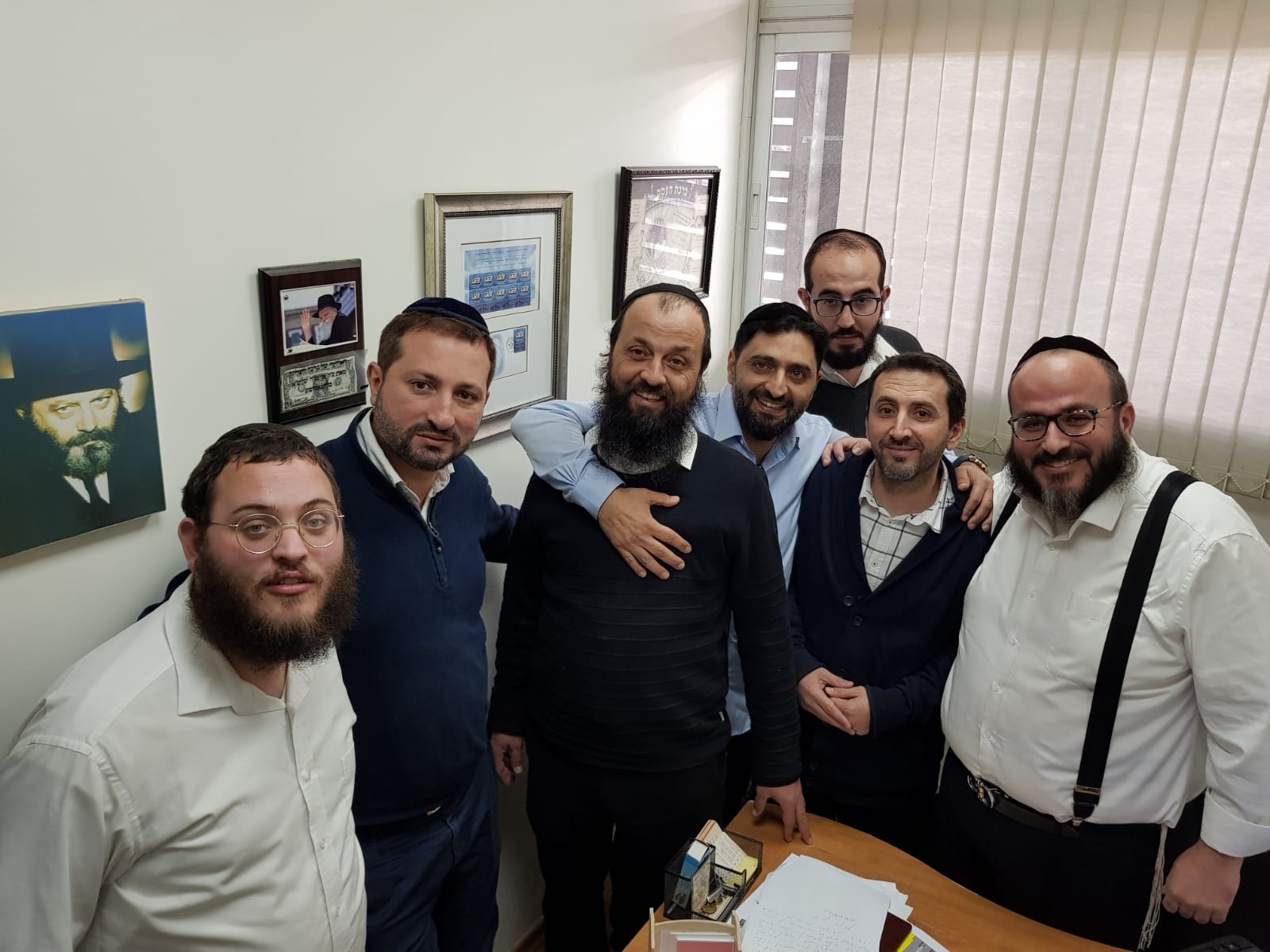
Finding Joy in Adversity
It's not always easy for him to smile and to be considered the 'King of Joy' (a nickname that has stuck with him in recent years). Ami Maimon reveals a challenging chapter in his life, when it turns out he battled a painful challenge for years when his seventh son, Shmuelik, was diagnosed with a disease known as 'Lysosomal Storage MPS' and suffered from severe disability.
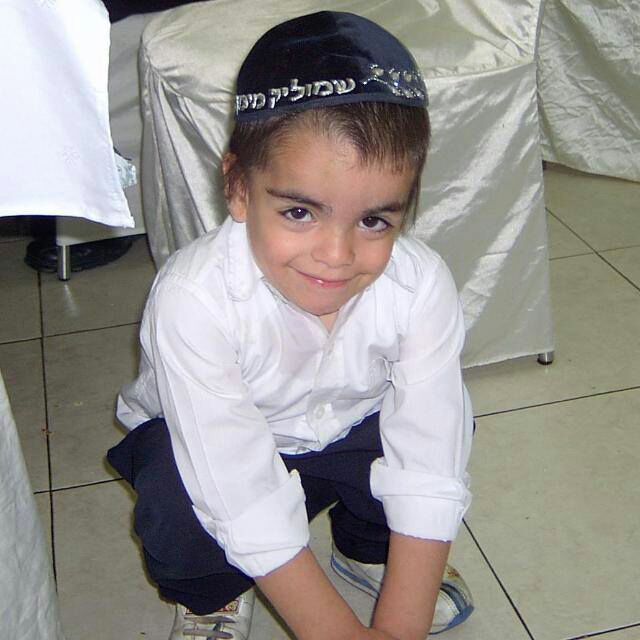 Child Shmuelik, of blessed memory
Child Shmuelik, of blessed memory"At first, I didn't share my struggle with the listeners about my son," he says, "I would go on air, ignoring the pain and the challenge, doing everything to make people laugh and enjoy to the heavens. Until the day came when I couldn't hold it in any longer, and during a broadcast, without any planning, I just burst out. I told the listeners about a standard, normal family with eight children, one of them diagnosed with a disease and hospitalized in a severe state. After I finished speaking, I added: 'This family is my own, and the sick child is my son, who is in so much need of your prayers. I'm not asking for money or anything else, just one request—I ask you to pray for his healing this Shabbat, which is Shabbat Mivarchim.'"
The reactions, as he notes, were more touching than he could have imagined. "People called me and told me they read Tehillim and Shir Hashirim, some kept Shabbat for the first time in their lives, across the country and even overseas. At that time, my son's condition indeed improved, and he was released from the hospital. I am unequivocally sure that the many prayers of the people of Israel played a huge part in this. We were granted a few more years with him."
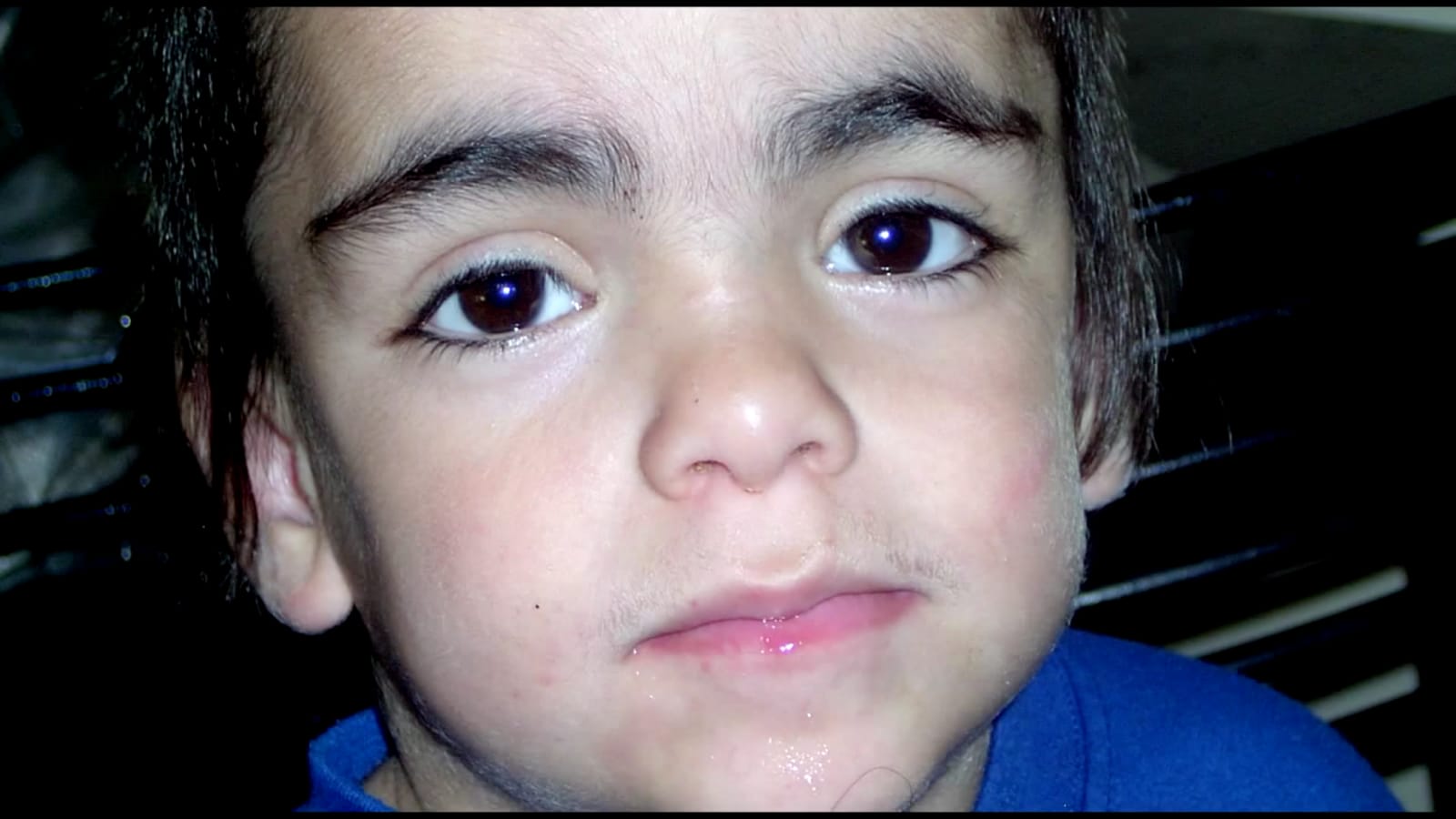
The following years were not easy because the son never fully recovered. Due to his illness, he was entirely dependent, not even able to eat on his own. "But we were neither pitiable nor did we let Shmuelik feel pitiable," Maimon emphasizes, "With the blessing of Hashem, I have older sons, and we divided the duty among all, who would carry him, who would administer medications, and so on. Several times, the suggestion was raised to send him to an institution, but we refused to hear of it. After all, Shmuelik is our child, just like our other children. He is a gift we received from above, how could we give him up?"
But when Shmuelik reached the age of thirteen, tragedy struck. A week after the grand Bar Mitzvah celebration his parents held for him, he passed away peacefully in his sleep.
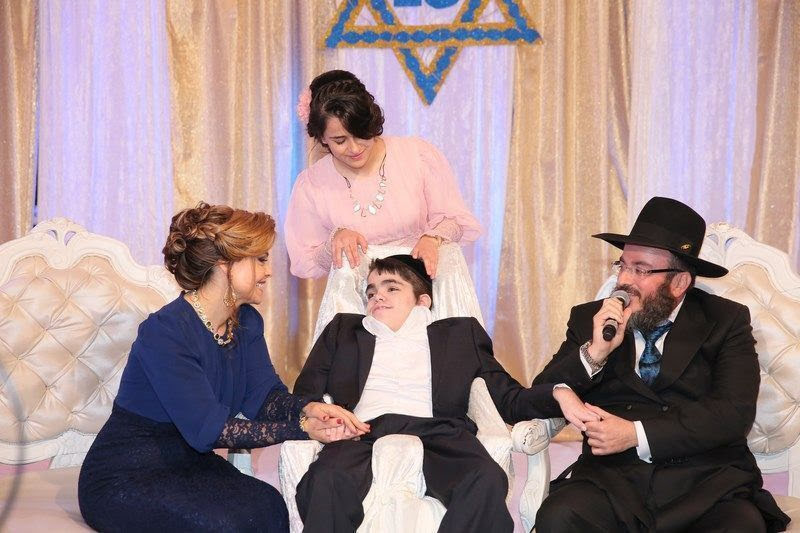 Ami Maimon and his wife with their late son at his Bar Mitzvah
Ami Maimon and his wife with their late son at his Bar Mitzvah"It's not easy to cope with the passing of a child," Maimon notes, "This is a tough trial that the struggle with it continues to this day, but we try to leverage it into the best possible place. Since what happened, I make an effort to visit families who have experienced similar tragedies and strengthen them, to prove to them that it's possible to continue living even after hard events. My wife works in another direction—a very big void developed within her since Shmuelik left us, and she decided to use her free time to realize a dream. She established a business called 'Yummy and Tali', through which she offers designed cakes and sweets for events. We're teaching ourselves how to grow even when it hurts, how to put on a smile even when it's tough, to keep moving forward and not stop. I'm sure this is precisely what Hashem requires from us."
A Life of Mission
Maimon notes that since he started broadcasting on the radio, he feels he lives a life of mission. "The feeling that you're saying a word and hundreds of thousands of people are listening—that's a staggering feeling. You realize that you're absolutely not allowed to utter even the dust of lashon hara, you understand what responsibility you have here."
And that's what led to his decision one day to lead the 'Six Constant Mitzvot' project, which he promotes specifically with Rabbi Boaz Naqi, who is part of the Jerusalem faction. "Not everyone knows, but there are six constant mitzvot that are fulfilled simply by thinking about them," he notes, "The mitzvot are: 1. Believing in Hashem 2. Not believing in any other 3. Unifying Him 4. Loving Him 5. Fearing Him 6. Not following the thoughts of the heart and the sight of the eyes. We launched a massive event at Binyanei Hauma, we brought in the best singers, and everyone sang about the six constant mitzvot, masses came, the hall was packed, and just to think how many mitzvot we managed to add this way to our people."
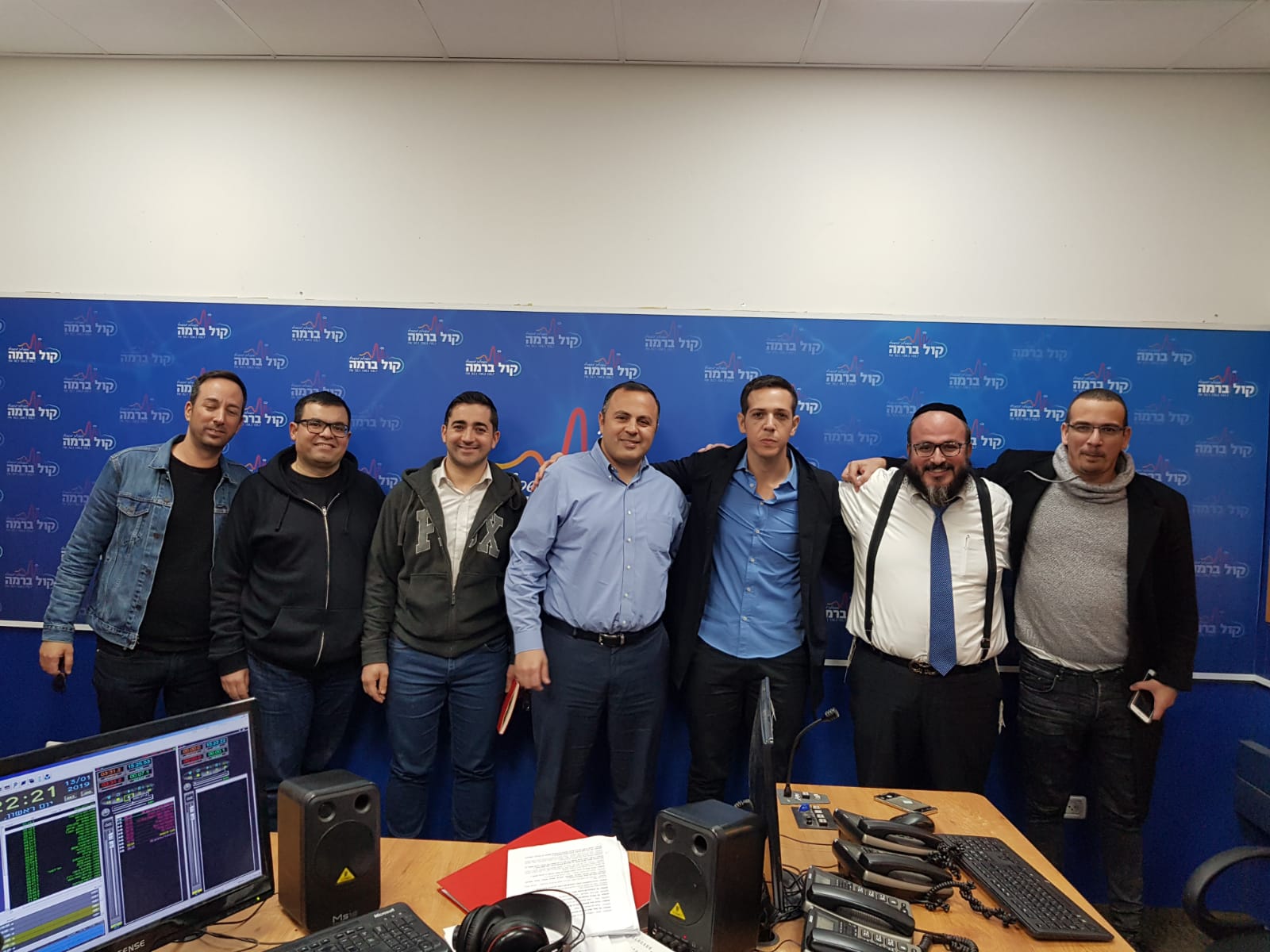 The owners of Radio 103 and North Radio came to visit. Shai Ben-Maor, one of the former CEOs at Kol Barama and now at 103, said at the meeting: We came to learn how to make excellent radio under Ami Maimon.
The owners of Radio 103 and North Radio came to visit. Shai Ben-Maor, one of the former CEOs at Kol Barama and now at 103, said at the meeting: We came to learn how to make excellent radio under Ami Maimon.In your shows, you also distribute valuable prizes. Do you feel a responsibility here, too?
"This is not about responsibility here because I give the prize to whoever manages to answer the most questions. Usually, it is a sum of money that grows according to the number of correct answers the listeners give. I have to admit that as the sum increases, my heart races alongside the listeners'. I really don't want to embarrass anyone, which might sometimes seem like what it is—I genuinely want everyone to earn and profit.
"Ultimately," he concludes hopefully, "what's important to me is to sanctify Hashem's name and imbue divinity in all media channels. Hopefully, I'll always succeed in doing this."
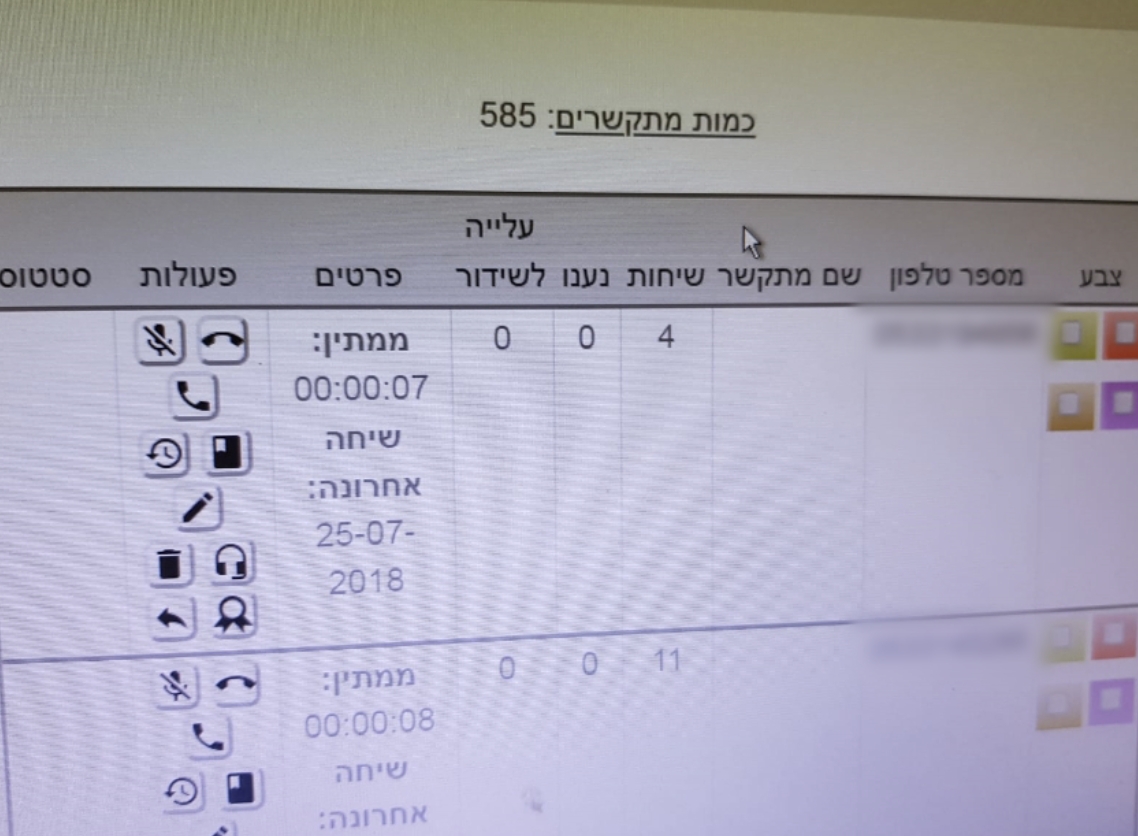 An unreal number of different people calling to play on Hidudon
An unreal number of different people calling to play on Hidudon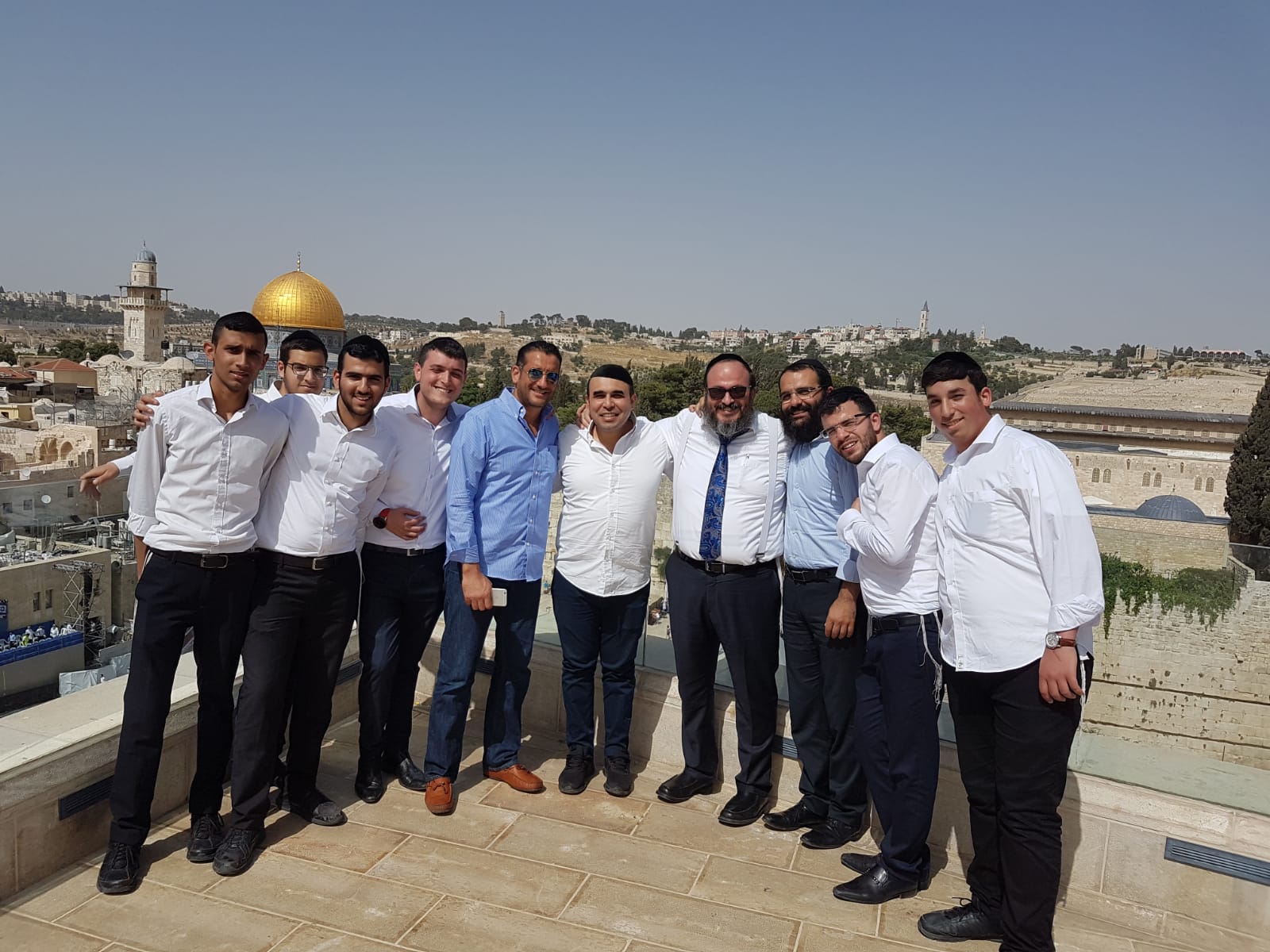 Jerusalem Day broadcasting from the field
Jerusalem Day broadcasting from the field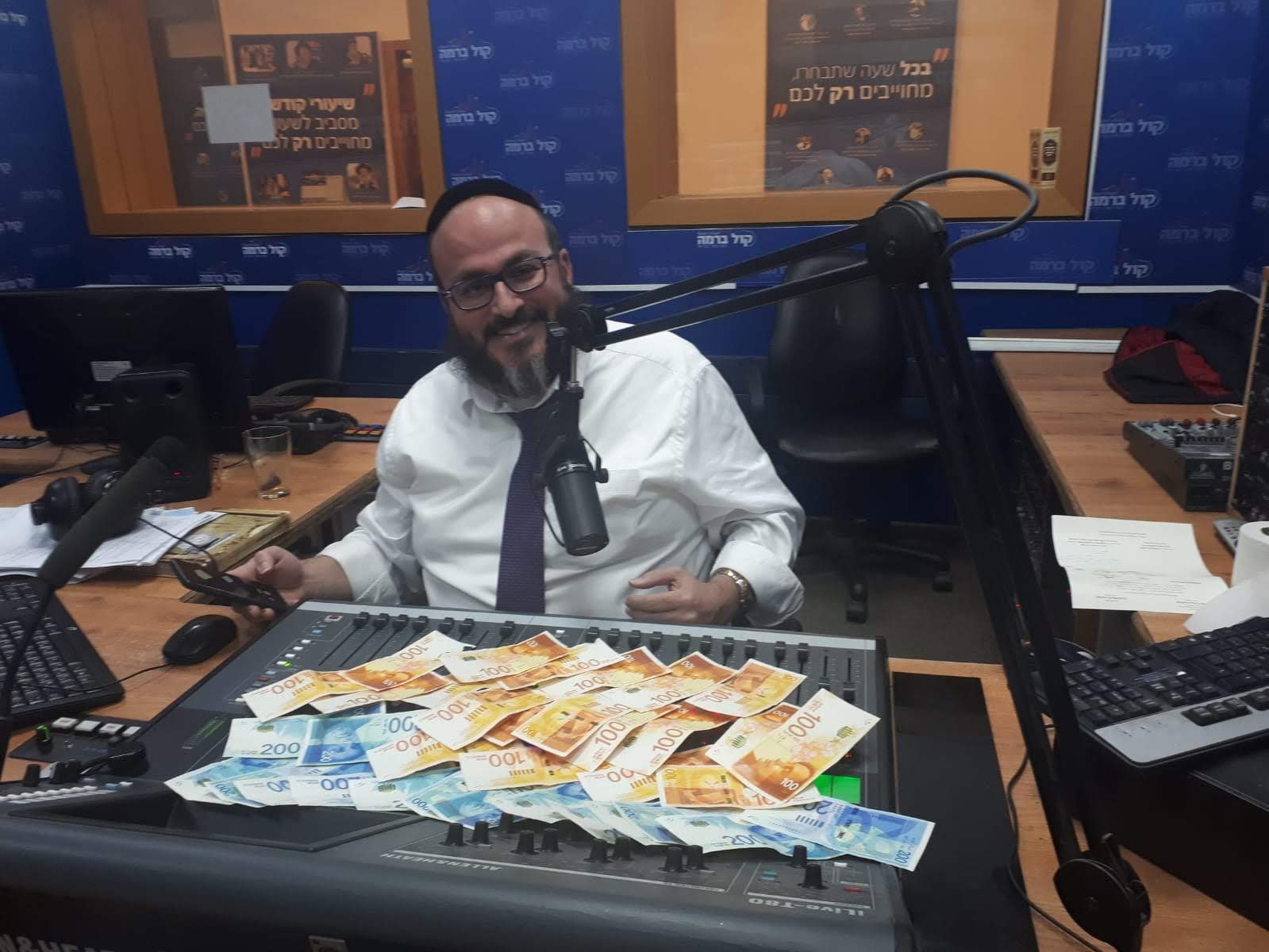 Playing for cash
Playing for cash